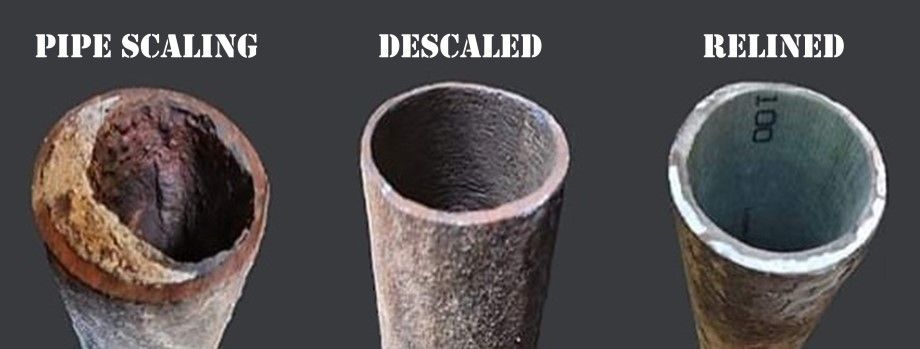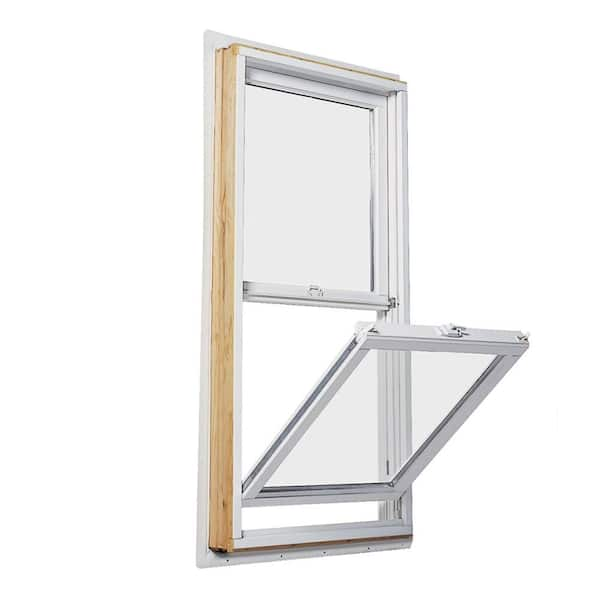Can You Descale Cast Iron Pipes: Essential Tips and Methods
Yes, you can descale cast iron pipes. It’s important for maintaining their efficiency and longevity.
Cast iron pipes are common in older homes and buildings. Over time, these pipes can develop scale, which is a buildup of minerals like calcium and magnesium. This buildup can restrict water flow and lead to clogs. Descaling helps remove this buildup, ensuring smoother water flow and preventing potential damage.
In this blog post, we will explore the methods of descaling cast iron pipes. You will learn about the tools and techniques involved, and how to keep your pipes in good condition. This guide will help you maintain your plumbing system effectively.

Credit: m.youtube.com
Introduction To Cast Iron Pipes
Cast iron pipes have been used in plumbing for many years. They are known for their strength and durability. But like all materials, they come with their own issues. Understanding these pipes can help you maintain them better.
History And Usage
Cast iron pipes date back to the 17th century. They were first used in France. By the 19th century, these pipes had spread across Europe and America. Their popularity grew because of their long lifespan. They can last for over 50 years. Many old buildings still have these pipes. They are used in both residential and commercial buildings. Their strong nature makes them ideal for high-pressure systems.
Common Issues
Cast iron pipes can face several problems over time. One common issue is rust. Rust can weaken the pipes. It also leads to leaks. Another problem is scale buildup. Scale is a hard deposit inside the pipes. It can block water flow. Tree roots can invade the pipes too. They can enter through small cracks. This can cause major blockages. Regular maintenance can help prevent these issues. Knowing these problems can help you act quickly. This can save you from costly repairs.

Credit: general-rooter.com
Signs Of Scale Buildup
Scale buildup in cast iron pipes can cause several problems. These issues can lead to serious damage if not addressed. By recognizing the signs early, you can take steps to fix the problem. Let’s explore some common signs of scale buildup.
Water Flow Reduction
Reduced water flow is a clear sign of scale buildup. As scale accumulates, it narrows the pipe’s diameter. This restricts water flow, causing slower drainage and lower water pressure. You may notice sinks and tubs draining more slowly. Low water pressure from faucets can also be a clue.
Visible Corrosion
Corrosion on the outside of pipes suggests scale buildup inside. Rust patches or flaking on the pipe’s surface are warning signs. These visible symptoms indicate that the pipe’s integrity is compromised. If left untreated, this can lead to leaks or burst pipes.
Why Descaling Is Important
Descaling cast iron pipes ensures smooth water flow and prevents blockages. It removes mineral buildup that can damage the pipes over time. Regular descaling extends the lifespan of your plumbing system.
Descaling cast iron pipes is crucial for maintaining your plumbing system. Over time, pipes accumulate mineral deposits. This buildup can cause many problems. Descaling helps remove these deposits, keeping your pipes in good condition.Preventing Blockages
Blockages can cause serious plumbing issues. Deposits restrict water flow and can lead to clogs. These clogs can cause backups and expensive repairs. Regular descaling prevents these blockages. It keeps water flowing smoothly through your pipes.Extending Pipe Life
Mineral deposits can damage cast iron pipes. The buildup can cause corrosion and leaks. Descaling removes these harmful deposits. This process extends the life of your pipes. You save money by avoiding early pipe replacement. “`Methods For Descaling Cast Iron Pipes
Have you ever wondered if you can descale cast iron pipes? You’re not alone. Descaling these pipes is essential for maintaining your plumbing system. Over time, minerals and rust can build up, causing blockages and reducing water flow. Let’s dive into the different methods for descaling cast iron pipes.
Chemical Cleaners
Using chemical cleaners is one of the easiest ways to descale cast iron pipes. Here’s how it works:
- Step 1: Purchase a pipe descaling chemical from your local store.
- Step 2: Follow the instructions on the label. Usually, you’ll need to pour the cleaner into the pipe and let it sit for a while.
- Step 3: Rinse the pipe with plenty of water to remove the cleaner and the dissolved scale.
Be careful though. Some chemicals can be harsh and damage your pipes if not used correctly. Always wear gloves and goggles for protection. If you’re unsure, consult a professional.
Mechanical Cleaning
If chemicals aren’t your thing, mechanical cleaning is another effective method. This involves physically removing the scale from the pipes. There are a few ways to do this:
- Plumbing Snake: A flexible, long tool that can be inserted into the pipe to break up clogs and remove debris.
- Hydro Jetting: This method uses high-pressure water to blast away scale and blockages. It’s powerful but should be handled by a professional.
- Rotary Tools: These tools have rotating heads that scrape the inside of the pipe, removing scale build-up.
Mechanical cleaning can be more thorough than chemical cleaning, but it often requires specialized equipment and professional expertise. It’s a good option if you’re dealing with severe blockages.
In conclusion, descaling cast iron pipes is crucial for maintaining a healthy plumbing system. Whether you choose chemical cleaners or mechanical methods, the goal is to remove the scale and ensure smooth water flow. So, take action and keep those pipes clean!
Using Chemical Cleaners Safely
Descaling cast iron pipes can be essential for maintaining your plumbing system. Using chemical cleaners is a popular method. It’s crucial to handle these chemicals safely to avoid damage and ensure effectiveness.
Choosing The Right Product
First, select a descaling product specifically designed for cast iron pipes. Check the label for compatibility. Avoid acidic cleaners as they can corrode the pipes. Look for products with a balanced pH level. Read reviews and instructions carefully.
Application Process
Prepare by wearing protective gear, including gloves and goggles. Ensure proper ventilation in the area. Pour the chemical cleaner into the pipe slowly. Follow the recommended amount on the product label. Allow the cleaner to sit for the specified time. This helps dissolve the scale buildup effectively.
After the waiting period, flush the pipes with plenty of water. This removes the dissolved scale and leftover chemicals. Repeat the process if necessary for heavily scaled pipes. Always store the chemical cleaners safely, away from children and pets.
Mechanical Cleaning Techniques
Descaling cast iron pipes can seem daunting, but mechanical cleaning techniques make this task much easier. These methods are effective and widely used by plumbers. Let’s dive into some of the most common techniques: hydro jetting, snaking, and rootering.
Hydro Jetting
Hydro jetting is like giving your pipes a high-pressure shower. It involves using a stream of high-pressure water to clear out the scale, debris, and build-up inside the pipes. Imagine the power of a fire hose but inside your plumbing system!
One of the key benefits of hydro jetting is that it can reach all corners and crevices of the pipes. It’s thorough and efficient, leaving your cast iron pipes squeaky clean. Here’s a quick look at the process:
- First, a plumber will inspect your pipes using a camera to locate the clog.
- Next, they’ll insert a hose with a special nozzle into the pipe.
- Finally, they will blast high-pressure water through the hose, breaking up and washing away the scale and deposits.
Snaking And Rootering
Snaking and rootering are more traditional methods but still very effective. Think of these techniques like using a flexible metal snake to slither through your pipes, breaking up and removing clogs as it goes.
The process usually involves the following steps:
- Inserting a long, flexible auger or “snake” into the pipe.
- Rotating the auger to break up the scale and debris.
- Removing the snake and any dislodged material from the pipe.
Rootering is a similar technique but is often used to deal with tree roots that have invaded the pipes. It uses a rotating cutting head to slice through the roots, clearing the obstruction.
Both snaking and rootering are reliable methods, but they might not be as thorough as hydro jetting. However, they are often a good first step if you have a significant blockage.
So, whether you choose hydro jetting, snaking, or rootering, each method has its benefits. Consider your specific situation and consult with a professional to determine the best approach for descaling your cast iron pipes.
Preventive Maintenance Tips
We all know that cast iron pipes are durable and can last for decades. However, like all good things, they need a bit of TLC to keep them in top shape. So, can you descale cast iron pipes? Absolutely! But beyond descaling, there are a few preventive maintenance tips that can save you a lot of hassle in the long run.
Regular Inspections
Think of regular inspections as a health check-up for your pipes. Just as you wouldn’t skip your annual doctor’s visit, don’t skip out on inspecting your pipes. Regular inspections can help you catch potential issues early before they turn into expensive repairs.
- Check for rust and corrosion: These are the silent killers of cast iron pipes. If you spot any, it’s time to take action.
- Look for leaks: Leaks can be sneaky. A small drip can lead to big problems. Keep an eye out for damp spots or water stains.
- Listen for unusual sounds: Gurgling, banging, or whistling noises can indicate a problem. If your pipes are singing, it’s not a good sign.
Using Water Softeners
Hard water can be a real pain in the neck for cast iron pipes. It leaves behind mineral deposits that can build up over time and restrict water flow. Using water softeners can help prevent this.
- Install a water softener: This device removes minerals like calcium and magnesium from the water, which are the main culprits of hard water.
- Regularly maintain the softener: Just like your pipes, your water softener needs regular maintenance. Check the salt levels and clean the unit as recommended by the manufacturer.
- Monitor water quality: Keep an eye on your water’s hardness level. If it starts to increase, it might be time to check your softener or call in a professional.
Preventive maintenance is all about being proactive rather than reactive. By following these tips, you can keep your cast iron pipes in good shape and avoid costly repairs down the road.
When To Call A Professional
Descaling cast iron pipes can be a daunting task. Sometimes, the buildup is too severe for DIY methods. Knowing when to call a professional can save time and prevent damage.
Severe Buildup
If you notice water draining slowly, it’s a sign of severe buildup. This can lead to complete blockages. Professionals have the tools to handle this. They can use high-pressure water jets or specialized chemicals.
Attempting to fix severe buildup alone can worsen the problem. You might push the blockage further down. This can cause more serious issues. Calling a professional ensures the job is done correctly.
Recurring Issues
Recurring issues signal a deeper problem. If you clean your pipes and the problem returns, it’s time for expert help. There may be an underlying issue causing frequent clogs.
Professionals can inspect the pipes thoroughly. They use cameras to identify hidden problems. This can include corrosion or cracks. Early detection can prevent costly repairs.

Credit: m.youtube.com
Frequently Asked Questions
Can You Descale Cast Iron Pipes Yourself?
Yes, you can descale cast iron pipes yourself using tools like pipe descalers and chemical cleaners. Ensure proper safety measures.
How Do You Remove Scale From Cast Iron Pipe?
Remove scale from cast iron pipes using a wire brush or descaling tool. Apply vinegar or descaling solution. Rinse thoroughly.
Is There Anything That Dissolves Buildup In Cast Iron Pipes?
Yes, you can dissolve buildup in cast iron pipes using a mixture of hot water, vinegar, and baking soda. For tough clogs, try a plumbing snake or consult a professional. Regular maintenance helps prevent future buildup.
Is Clr Safe For Cast Iron Pipes?
CLR is not safe for cast iron pipes. It can cause damage and corrosion. Use a suitable cleaner designed for cast iron.
Conclusion
Descaling cast iron pipes is possible and can improve water flow. Regular maintenance prevents clogs and extends pipe life. Consider professional help for best results. DIY methods also work but need caution. Always follow safety guidelines while descaling. Clean pipes ensure efficient plumbing.
Regular checks can save you money on repairs. Keep your pipes in good condition. It’s worth the effort for a smooth-running system.

My name is Maria, A professional merge game player with years of experience mastering games like Merge Dragons, Merge Gardens, Merge Mansion, and more. My passion for uncovering the best strategies, solving tricky puzzles, and discovering hidden secrets led her to create MergeGameplay.com.





